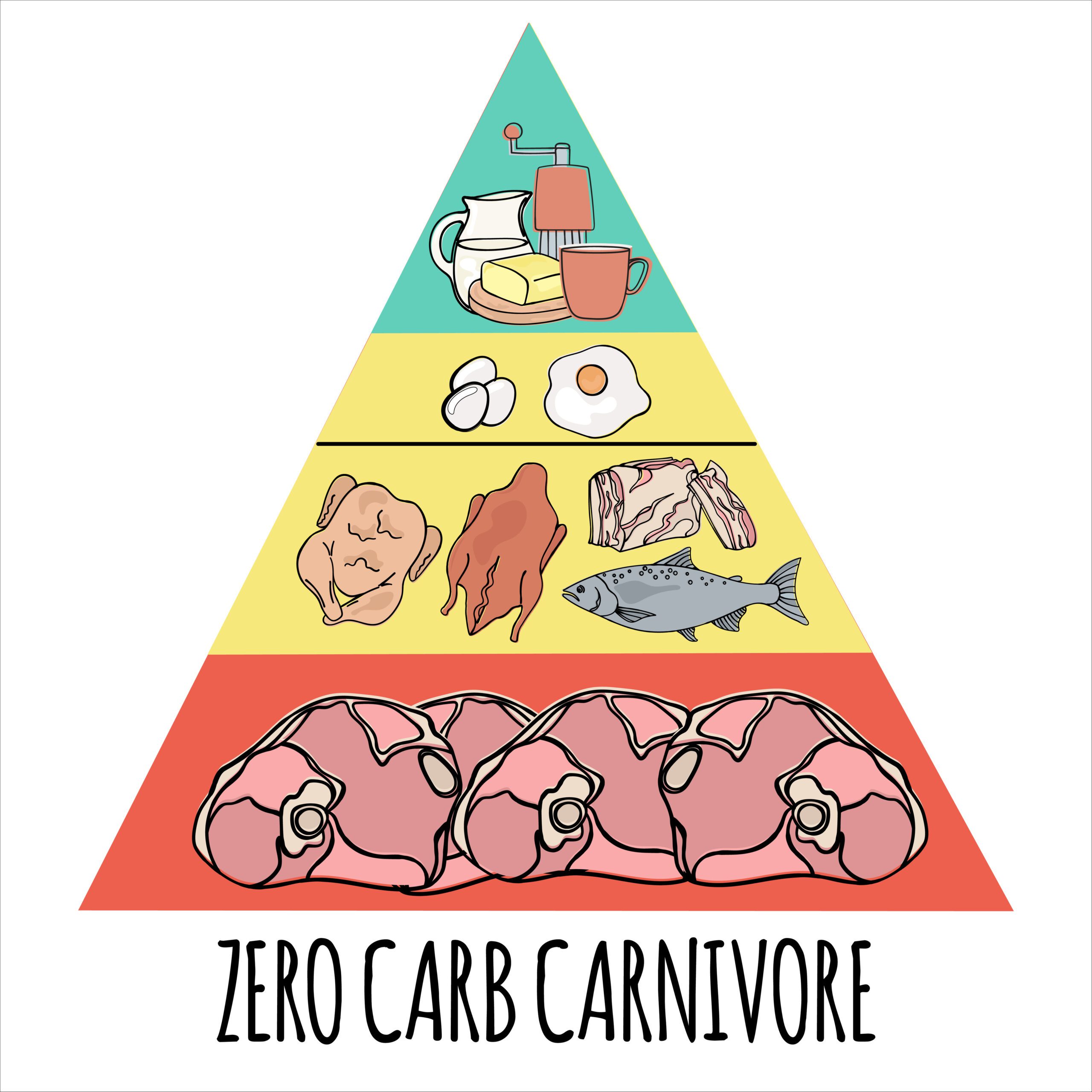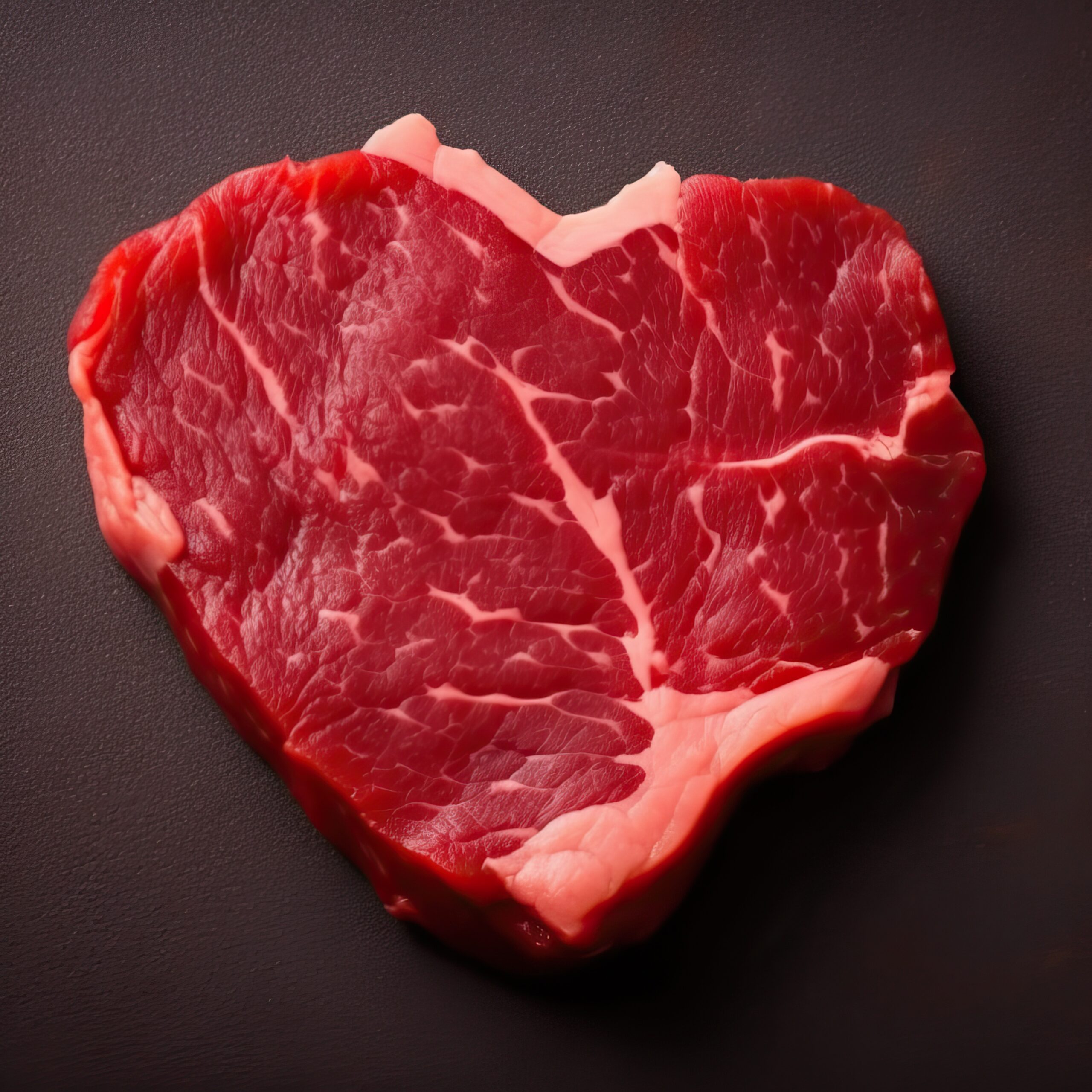
Written By: Jack Riess NASM Certified Personal Trainer and Life Long Researcher of Health and Longevity.
Welcome to the fascinating world of diet and nutrition, where new eating habits emerge, each promising to revolutionize your health and well-being.
Today, we’re focusing on one such contender that’s been stoking intrigue and controversy in equal measure – the carnivore diet.
At its core, the carnivore diet is as primal as it gets – a meat-centric eating regimen propelling us back to our hunter-gatherer roots, swapping out the colorful medley of fruits and vegetables for an unambiguous plate of animal products.
Over the past few years, this diet has gained a considerable following, with ardent supporters swearing by its transformative potential.
But as with any dietary philosophy, it’s essential to step back and weigh the pros and cons objectively.
That’s the purpose of this blog – to take a balanced look at the carnivore diet, exploring both its allure and its potential pitfalls.
We’ll dive into the diet’s impact on weight loss, nutrient density, and inflammation, while also discussing potential nutrient deficiencies and long-term health risks.
It’s about giving you a comprehensive understanding of this eating pattern so you can make informed decisions about your dietary choices.
Understanding the Carnivore Diet

Now, let’s delve into the carnivore diet, its principles, and its various incarnations.
Simply put, the carnivore diet comprises animal products alone.
Meat, fish, eggs, and certain dairy products are all on the menu.
In contrast, fruits, vegetables, legumes, nuts, seeds, grains, and other plant-derived foods are strictly off-limits.
Some variations of this diet exist. For example, the “strict” carnivore diet emphasizes only meat and water.
Meanwhile, others may allow for more flexibility, incorporating animal-derived products like eggs and dairy.
The science and philosophy underpinning the carnivore diet hark back to our ancestors and evolution.
Proponents believe that, as Homo sapiens, we evolved to thrive on a meat-dominated diet, our digestive systems naturally predisposed to handle a high intake of animal products.
The argument suggests that it was only with the advent of agriculture – a mere blip on the timeline of human evolution – that plant foods became a significant part of our diet.
This exploration into the carnivore diet is just the beginning.
As we move forward, we will address the potential benefits and drawbacks of this dietary pattern, including personal experiences and expert opinions.
Our goal is to arm you with a comprehensive understanding of the carnivore diet to inform your own decisions about whether it could be right for you.
So, let’s venture forth into this intriguing nutritional terrain.
Positives of the Carnivore Diet

Stepping into the spotlight, let’s examine the potential positives of the carnivore diet that have drawn individuals towards this particular eating pattern.
Firstly, it’s worth noting that some advocates report weight loss as a significant benefit.
The carnivore diet is naturally high in protein and fats, while being extremely low in carbohydrates.
High protein diets have been associated with increased satiety, leading to lower overall calorie intake, which can promote weight loss.
In fact, a study published in The American Journal of Clinical Nutrition found that high-protein diets can help preserve lean mass and increase energy expenditure during weight loss.
The carnivore diet also offers a degree of simplified eating. With a limited food list predominantly containing meat and animal products, meal planning and grocery shopping can become streamlined and more straightforward.
Thirdly, the nutrient density of animal products can’t be overlooked.
Meats are rich in proteins, essential fats, and certain vitamins and minerals like Vitamin B12, Iron, Zinc, and Selenium, which are crucial for various bodily functions.
Lastly, some followers of the carnivore diet report reduced inflammation.
By excluding potential dietary irritants found in plant foods, such as lectins or other antinutrients, individuals with specific sensitivities might experience a decrease in inflammatory symptoms.
Research in the Journal of Experimental Medicine suggests that certain dietary lectins can exacerbate inflammatory conditions, and therefore, avoiding these could theoretically reduce inflammation.
Negatives of the Carnivore Diet

While the benefits of the carnivore diet might seem appealing, it’s crucial to address the potential negatives.
No dietary pattern is without its drawbacks, and the carnivore diet is no exception.
The primary concern lies in the risk of nutrient deficiencies.
Plant-based foods provide essential nutrients like dietary fiber, Vitamin C, E, K, and a host of antioxidants.
Without these foods, individuals on a carnivore diet might face the risk of nutrient deficiencies, leading to potential health issues.
The carnivore diet also comes with potential health risks.
A diet high in red and processed meat and low in fruits, vegetables, and whole grains has been associated with an increased risk of heart disease, certain cancers, and kidney damage.
The World Health Organization classifies processed meats as a Group 1 carcinogen, indicating that there’s sufficient evidence that it can cause cancer.
Next, we must consider the sustainability and ethical concerns.
A high meat diet demands a significant environmental toll, with animal agriculture contributing notably to greenhouse gas emissions and deforestation.
Ethically, the treatment of animals in many farming practices also raises concerns.
Lastly, the carnivore diet can prove challenging in social situations.
Dining out or attending events with a limited dietary pattern can lead to awkward situations and difficulties in finding suitable meals.
In the grand scheme of things, navigating the world of diets and nutrition is a personal journey, one that should be approached with a critical and discerning eye.
The carnivore diet, like any diet, comes with its pros and cons, and considering these is vital in determining if this diet aligns with your health goals and lifestyle.
Expert Opinions

Navigating dietary choices can be daunting.
To further our understanding of the carnivore diet, let’s explore some expert opinions.
Dr. Alan Roberts, a well-regarded nutritionist, acknowledges the potential of the carnivore diet for short-term weight loss.
However, he also points out the lack of comprehensive research on the diet’s long-term effects and raises concerns about nutrient deficiencies.
Susan Patrick, a registered dietitian, stresses the importance of dietary balance.
She highlights that while a diet rich in animal proteins can provide certain essential nutrients, completely cutting out plant-based foods may lead to the loss of other essential nutrients and antioxidants.
Dr. Matthew Lewis, a cardiologist, underscores the potential cardiovascular risks of a high-meat diet.
He refers to various studies that link high intake of red and processed meats with an increased risk of heart disease.
The consensus among these experts seems to indicate caution.
While there might be potential benefits of the carnivore diet, especially in the short term, the long-term health implications warrant further investigation.
They emphasize the need for a balanced approach to nutrition and the importance of personalized dietary choices based on individual health profiles.
The Choice is Yours!

Navigating the nutritional landscape is akin to a journey.
Each dietary pattern has its waypoints, leading to a unique set of benefits and drawbacks.
The carnivore diet, with its primal leanings, is no exception.
The positives of this diet, including potential weight loss, simplified eating, nutrient density, and, for some, reduced inflammation, can be significant attractions.
However, they stand side-by-side with potential negatives such as nutrient deficiencies, health risks, sustainability concerns, and social challenges.
Choosing a dietary pattern is not a one-size-fits-all decision.
It’s a deeply personal choice, intertwined with our lifestyle, health goals, ethical beliefs, and even our social fabric.
Each one of us is unique, and our diet should reflect that uniqueness, considering individual health conditions and nutritional needs.
Before embarking on a dietary change as significant as the carnivore diet, consulting with a healthcare professional is crucial.
They can provide personalized advice based on your health profile, ensuring that your nutritional needs are met while reducing potential risks.
Remember, making informed decisions about our health and diet is one of the most empowering steps we can take.
So, continue to ask questions, seek reliable information, and reflect on your personal needs and values when considering any dietary choice.
Thank you for joining us on this exploration of the carnivore diet.
We hope it has provided you with valuable insights and perspectives to help you on your journey towards optimal health.

A new study suggests that a widely used sugar substitute found in diet sodas, chewing gum, and low-sugar yogurt may elevate insulin levels. This could increase the long-term risk of heart disease. “Artificial sweeteners have infiltrated nearly all types of food, making it crucial to understand their long-term health effects,” said Yihai Cao, senior author […]

Diet Coke has long been a fan-favorite among soda lovers who want a fizzy, guilt-free alternative to traditional soft drinks. While its zero-calorie, zero-sugar label makes it seem like a healthier option, the reality is far more concerning. Despite its undeniable popularity, Diet Coke’s nutritional profile has raised red flags among health experts for years. […]

New study shows that embracing an anti-inflammatory, plant-forward diet can support cognitive function and help reduce the risk of dementia. What You Eat Shapes Your Brain The food you eat doesn’t just impact your body—it also affects your brain. Research suggests that eating an anti-inflammatory, plant-based diet can help improve memory, focus, and overall brain […]